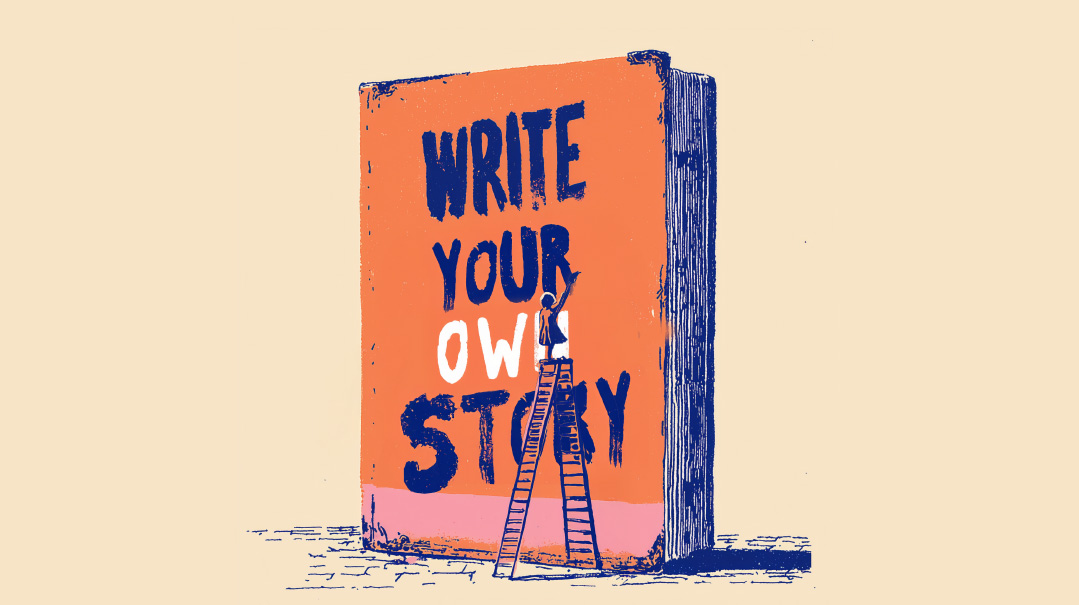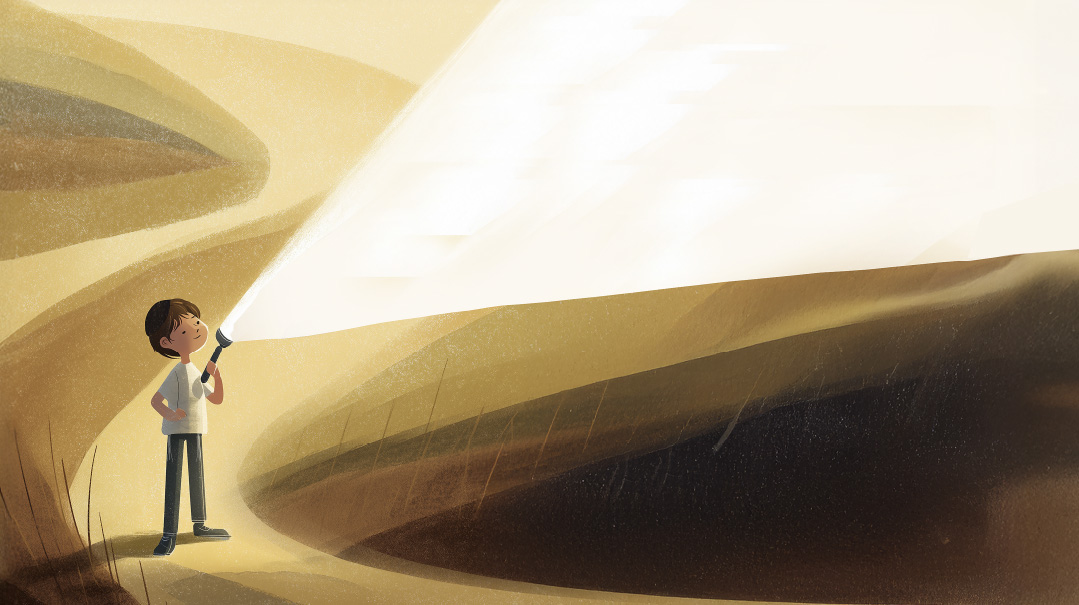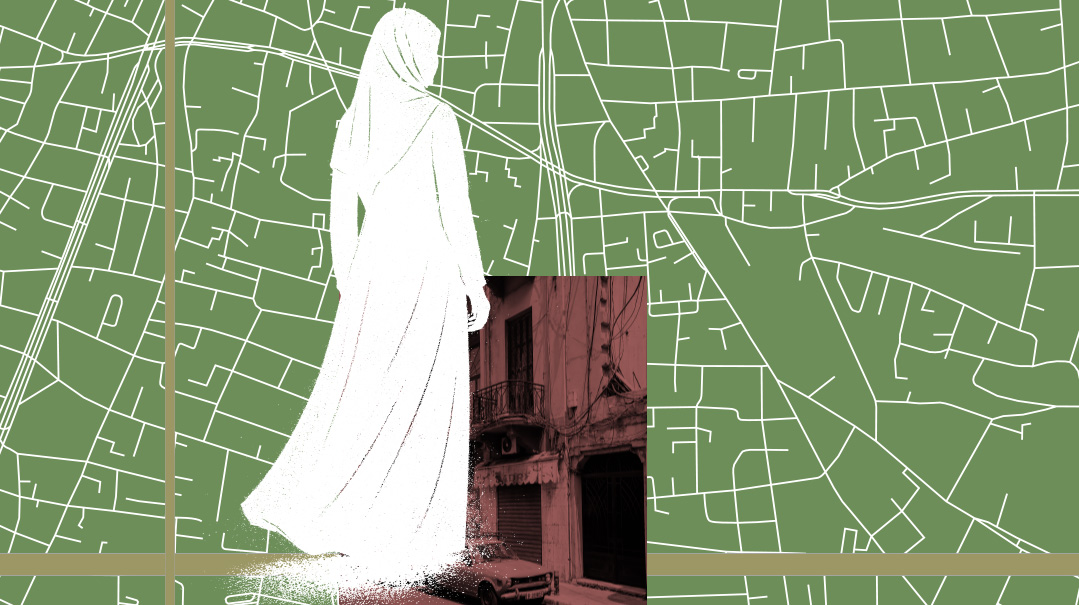For Keeps
| August 12, 2020COVID overturned our lives. While most changes were temporary, ten women share the changes they want to keep

Meet the Interviewees
Leah, age 25
Far Rockaway, NY
Playgroup Teacher
Shaindy, age 58
Woodmere, NY
Personal Trainer
Esther, age 38
Brooklyn, NY
Artist
Yonit, age 30
Columbus, OH
Elementary School Teacher
Naomi, age 31
London, England
Occupational Therapist
Sarah, age 44
Jerusalem, Israel
Seminary Administrator
Chaya, age 40
Lakewood, NJ
Computer Programmer
Yael, age 61
Maalei Adumim, Israel
Metapelet (Caretaker) and Life Coach
Rachel, age 30
Phoenix, AZ
High School Teacher and Director of Student Activities
Dina, age 31
Jerusalem, Israel
Accountant
Marriage
Leah: My husband sometimes felt that I prioritized other things over him. The reduced work responsibilities gave me the headspace to examine this. I read a book on marriage which shifted my perspective and taught me how to show my husband how much I value him. We are closer now, and once we leave the “quarantine bubble,” I’ll be better able to keep my focus on him.
Sarah: I’m more of the day-to-day manager, and my husband is more of the crisis controller, so when COVID-19 hit, he really supported me and the family with a calm head and a lot of emunah. We didn’t do was the usual relationship stuff like going out. We spent more time and energy on parenting and managing our seminary and less time on our marriage. We have a very secure relationship, though, so we knew we could weather this storm. When the pressure subsides, I want to make sure we go back to nurturing our relationship, which is what keeps us as strong as we are.
Yonit: Since corona hit, I’ve been able to spend more time at home with my husband than I have in our past ten years of marriage. We now joke that we should both find stay-at-home jobs. The overall level of anxiety in the household greatly decreased, as I’m a natural homebody, and I loved not having to run to work, events, and errands, and enjoyed having my husband at my side. A simple, slower life really does feel better, and I’m going to look for ways to keep things balanced with more family downtime and less running around.
Dina: My marriage has had its ups and downs over the years, and we’ve worked hard to come to where we are today. When the lockdown started, I was worried that the increased time together and surge of responsibilities would be too much for both of us to handle. I was pleasantly surprised at how little we fought. Most issues seemed insignificant in the context of a world pandemic. Still, there were some awful moments. They made me take a step back and ask myself if our marriage needs help. After a few years’ break from therapy, I’ve finally found a therapist who’s helping me better understand myself and my marriage. It’s one of the best investments I’ve ever made in our home.
Shaindy: My husband and I were home alone for Shabbosim, the Seder, and Yom Tov this year, which was really nice. We spent a lot more quality time together than usual. Baruch Hashem, we’re involved with communal needs and surrounded by wonderful family members so it’s not so easy to spend time together, but we’re going to try to keep it going.
Naomi: My heart goes out to those who struggled with their marriages at this time, and I feel blessed that that wasn’t the case for us. We managed to fill the roles of teacher and cleaning lady in addition to our regular responsibilities, and we learned that we can do anything together. I believe the key has been limiting our expectations (of each other, the kids, cleanliness of the house). We feel grateful to have had the experience of seeing that with Hashem’s help we can come out stronger when things don’t go as planned. Knowing this will give me the chizuk to deal with future challenges.
Parenting
Rachel: I considered myself to be a fairly good parent. Obviously there’s always room for improvement, but I thought I pretty much had it under control. But once my kids were home all the time, boy, did I see how much I had to work on my patience! I also realized how important it is to spend more quality time with my kids. I now go on a walk every day with my two youngest to give them some alone time, and I’m building a beautiful relationship with them.
Chaya: I worked full-time during lockdown, so it wasn’t as if I had this idyllic period of giving my children mega doses of extra attention and all of us learning new skills. It was a time of just being — which meant enjoying a certain calm that comes with less external pressure. Every one of my children experienced this calm. Yes, it was crazy with the kids home and me trying to find each of them a quiet place from which to call in to their classes while being the assistant teacher for my first grader and doing my own work, too. And yet, now that my children are back in routine, I miss them so much. I thank Hashem for this opportunity to have been with them for months, which, as a working mother, I’d never had before.
Esther: There were many difficult moments, but I don’t believe they were specifically due to quarantine, rather a sign of middos that have to be worked on. Quarantine just shone the spotlight on them. One son only comes home from yeshivah once every three weeks. When he was home full-time, it brought us face-to-face with challenging issues. For others, quarantine relaxed some previously stressful situations. For example, one child is often late because her clothing, hair, etc. has to be just so. For this child, getting to “Zoom school” on time was a lot less stressful, and we had fewer meltdowns. Putting aside unrealistic expectations was very beneficial, and I’m going to keep this in mind when we go back to our regular schedules.
Dina: My kindergarten-aged daughter has many learning challenges (including ADD and Sensory Processing Disorder), and during quarantine, I had to face these difficulties all the time. I had moments when it was too much to bear — seeing her struggle with basic concepts put me into a sour mood. I recognized my need to withdraw regularly, so my husband and I switched off, and this helped. I also spoke with our parenting coach who gave me amazing advice: First, she reminded me to focus on my daughter’s strengths and not to blow things out of proportion. Second, she advised me that when I’m with her, I need to focus more on our relationship than on the chinuch. This took off the pressure. I decided to disregard most of the exercises she got from her teacher and just have a good time with her. We’re now seeing a new, amazing OT who echoed this same message — to prioritize my relationship with my kids over teaching skills because that’s true chinuch.
Sarah: To keep the kids from bickering, I let them do things I don’t normally encourage — like watching movies and playing video games. Despite all that, we did very well during this difficult time. I davened a lot and said a lot of Tehillim. Something came to light, though. My children aren’t interested in frum books. I saw that I, too, prefer secular novels to Jewish reading material. This made me realize that our family isn’t very “into” frum culture. I’d love to have a home that’s “all Torah” but I’m learning to accept the fact that secular culture is part of our world. My husband and I work at being role models of works in progress to our children. We want them to feel comfortable to come to us with their challenges of balancing priorities in life. I continue to daven that they live and love Torah and also integrate whatever level of the secular world they choose into their Torah lives.
Leah: I always wished I could have more quality time with my baby. Corona made my wish come true. (I even felt guilty for enjoying it so much due to the global circumstances.) But after a while, I realized it was difficult for me to be home all day and not interact with other adults, even if just the parents of my adorable charges. I’m grateful to be back at work. I make sure, though, to get up a little earlier and come home right away so that I can have more “mommy” time, with my phone off and my full attention on my son.
Work Habits
Yonit: Switching to online teaching in a matter of a few days was a real challenge. It required adjusting the material, then figuring out how to keep the lessons engaging on Zoom. I was obsessed with conveying the maximum amount of knowledge with minimum frustration. Once, I spent two hours on a PowerPoint presentation, only to decide that it didn’t quite cut it. My teaching hours were my second shift after the kids went to bed, and I’d often record my classes at 2 a.m. I wouldn’t want to use this teaching method long-term, but I feel enriched and empowered by what I accomplished, and it’s given me a boost in my confidence as a dedicated teacher.
Rachel: I’ve always said that the high school and my family are my life. The past few months have brought home for me that Hashem wants me to know that, “No, Rachel — the school is your parnassah, but your family is your life.” I was so used to driving myself crazy to fit everything in that it was actually painful at first to set boundaries and put my family first. I hope to always be that dedicated teacher, but at the same time hold on to the knowledge that it’s okay to say “No” to work if it means “Yes” to family.
Yael: During this time I made a real cheshbon hanefesh. I came to see that while my caretaking jobs are satisfying, I can do more than be a BubbieOnCall (the name of my business.) I want to utilize my full potential. I want to learn new skills and not return to my pre-corona self. I decided to take a course at the Jerusalem Coaching Institute to prepare myself for my next phase of life. I graduate in September.
Shaindy: I work as a personal trainer, but being home with a lot more time on my hands, I decided to help my son with his business. He lives in Eretz Yisrael and works remotely, dispatching packages for Amazon. I was able to send his packages out for him. He taught me a whole bunch of new things about business and computers which I found really interesting. I’m so happy I’m able to do this chesed for my son, and I want to keep doing it as long as I can.
Leah: Before coronavirus, I felt that there wasn’t enough of me to go around. I wasn’t doing anything as well as I wanted, and I was perpetually exhausted. Lockdown required me to take a step back from work since the only thing I could offer the children in my playgroup was an hour-a-day online. I redefined what it is that makes me valuable and let go of the expectations to be a “perfect” teacher. It’s the care I put in that counts, and whether the children nap, follow directions, or even show up, isn’t up to me. I realized it’s more important to be relaxed about who I am than to be stressed about who I’m not.
Housekeeping
Naomi: Following government orders, we told our cleaning lady not to come. This taught me that if we have to do it, we can. When she finally returned, I was proud the house didn’t look as if no one had picked up a spritz bottle or cleaning rag for eight weeks. I also learned that I dislike cleaning even more than I thought I did, and I recognize that a cleaning lady is an absolute necessity for me!
Rachel: Housekeeping is not my forte. Mess doesn’t stress me out like it does my friends. But being home all day and noticing my home’s scratches and scrapes, I became more into house maintenance. We did a bit of redecorating, and we invested in a new porch set so we could enjoy being outside.
Esther: I used to rely on twice-a-week cleaning help for my sanity’s sake. With that gone, my kids had to rise to the occasion. My dictator moments when I had to sternly lay down the laws of the chores notwithstanding, I think it’s good for them to have responsibilities and pitch in, and I’d like to keep this up. But I’m not giving up on at least once-a-week cleaning help just yet!
Chaya: Along with my increased job pressures, I had no cleaning help and a full house all the time. I was exhausted and trying to keep up with everything. In spite of it, though, I was lucky that my children were happy to be home. No trips to the store, no Chol Hamoed outings, no time with friends — and amazingly, no one complained. Since there was no FOMO, we could enjoy schmoozing together and get some chores done, too. I was appreciative of the extra help, but my main joy was seeing my family work together. I hope we can preserve the memory as a touchstone to refer back to even as I feel it slipping through my fingers.
Self-Care
Yael: The first major change I made was in the area of sleep. I “sleep trained” myself to rest 7-8 hours a night, by having a nightly wind-down routine, including journaling to clear my mind. Planting a garden was next. The excess produce we grow will be shared with families who can use help during these times. At least once a day I meditate while sitting in the garden that faces the skyline of Jerusalem. It’s an amazing time to check in with myself. Lastly, I started taking regular walks. These were not just changes to get me through corona — I’d like to keep them all because I see how beneficial they are.
Rachel: I’ve always appreciated the value of self-care and considered myself to be pretty good at it. Only once I was home all day did I realize how much more of it I still needed, possibly because I didn’t have my workplace as an outlet. I decided to take better care of my skin. I used to think, “Who has time for that?” Well, I realized that I did! I had my nails done recently, and I make it a priority to work out and eat well. I’m planning to continue with my new exercise routines and better eating habits.
Sarah: My main self-care activity is to go to the gym regularly for yoga, Pilates, toning — any class that works into my schedule. My gym is also a social outlet, it’s where many frum women hang out and schmooze, and I really missed that — it balances me mentally, physically, and emotionally. I couldn’t wait to get back to it. Eating well was also hard because my teenage daughter is an amazing baker, and she baked almost every day so I gained a lot of weight. Now that we’re in post-lockdown, I’ve gone back to exercising. My whole family has gotten more into working-out, and I’m sure it’s because I’m prioritizing it for myself.
Esther: In the beginning of the quarantine I had this great idea that I’d get dressed nicely, including sheitel and makeup, every day. That lasted for a day or two until I came down with COVID-19 — and then it was mainly about survival. And if my tichel was on sideways, well… I was more worried if the shortness of breath I was experiencing warranted a call to Hatzalah. I tried to rest as much as I could and boost my immune system. To keep my spirits up, I watched funny clips. I also listened to a series on Eishes Chayil and painted verses based on that. I saw that while I started out with one picture of what it meant to be an Eishes Chayil, I now need to “paint” a new one. While we can hope and plan to handle something in an optimal way, sometimes it’s just about doing your best under the circumstances — and the new path can be just as rewarding.
Inspiration
Yael: Somewhere in the beginning of this difficult time, I decided that I wanted to emerge from it differently than when I entered, through recognizing that Hashem is by my side. He decides what’s going to be, and I’m going to follow His will by maximizing my gifts and being of service. I made a change in my career path and took better care of myself. So although many parts of corona have been hard — no hugs, no visiting the grandchildren, being home for months — I feel it’s also been a gift, a reset button for tremendous spiritual growth that will have a lasting impact on my life.
Dina: At first, it was really nice to get beautiful messages, videos, poems, and essays about what we could learn from this experience. But eventually, it became overwhelming. What do I need to work on? Ahavas Yisrael? Being less materialistic? Appreciating when my husband goes to minyan? The list was endless, and I was starting to forward these messages without even opening them. What helped me was a conversation with a close friend, where I expressed this frustration. I spent a lot of time talking to her and then to myself afterward, trying to pinpoint exactly what lesson and which area of teshuvah spoke to me most. This kept me anchored so that every time I got another “inspiring message” I could bring it back to my personal avodah.
Chaya: At the height of the pandemic, a rebbetzin who was very influential in my life became seriously ill (from old age). At the same time, my family knew of many people who were sick in the hospital. I was encouraged by the rebbetzin’s family to start davening Shemoneh Esreh three times a day as a zechus for her recovery. I decided I’d try, and my teen daughters did as well. I was so impressed that my daughters understood the idea that we can outwit the yetzer hara by seizing the moment and taking on something tangible. While I haven’t been so consistent with Maariv, I’m keeping up with davening more than I have in many, many years. I feel holding on to the extra davening also helps me hold on to the many other lessons I learned during lockdown.
Esther: I know a lot of people got into “Zoom classes.” For me, attending shiurim in person is something that keeps me sane. Listening to recordings isn’t the same as seeing people in real life. This made me realize the essential need for supportive connections on a personal level and facilitating more such opportunities on a communal level.
Yonit: The upheaval caused by the pandemic was terribly nerve-racking, specifically for one of my children. My kids grew immensely from being able to navigate their feelings with our guidance. We talked openly about how to frame the situation and trust in Hashem. When a close family member was in a critical situation, we used it as an opportunity to teach them the Jewish perspective on hardship. I recognize that this was a very difficult time for many, and I’m immensely grateful and humbled that Hashem granted me the opportunity to flip a potentially horrific time into an inspirational and rewarding experience for my family.
Keepsake
Esther, one of my interviewees, reflected:
Things were always so busy before quarantine — this project, that event — distracting me from my focus on my family. The pandemic forced me to drop everything besides the essence. How do I keep that sense of “this is who/what I need to focus on at the moment”?
This is my take:
The things that keep us busy — the projects, the events, the work — are all a part of what makes us who we are. Even while our main focus is the home, it’s good for our kids to see us giving, and it’s good for us to feel fulfilled and to feel that we’re a part of a community.
Holding on to the sense of “this is where I need to be” starts with acknowledging “this is who I need to be.” We say the brachah of “she’asani kirtzono,” Hashem made me according to His will. Hashem gave women the ability to tap into His will for us at each moment and to change our mode and mindset depending on each unique circumstance.
As women, we have multiple roles, responsibilities, and goals. We have many relationships we need to nurture, and a need for self-care and enjoyment. At every stage, at every moment, whether during a crisis or when things are calm, our job is to mold ourselves “kirtzono.”
The key is anchoring ourselves with a mantra we can carry throughout the day. This brachah can be our personal mission statement and our overall acceptance that today, I’m going to do whatever it is I need to do to be the best person I can be.
Mindel Kassorla has been a seminary mechaneches for over a decade and is launching an online seminary program “IsraeLive” this September. She lives with her husband and children in Jerusalem.
(Originally featured in Family First, Issue 705)
Oops! We could not locate your form.













